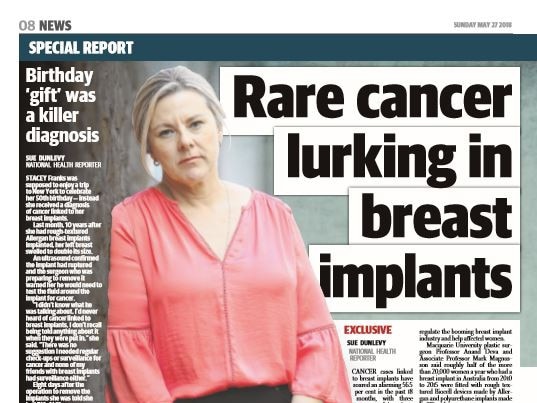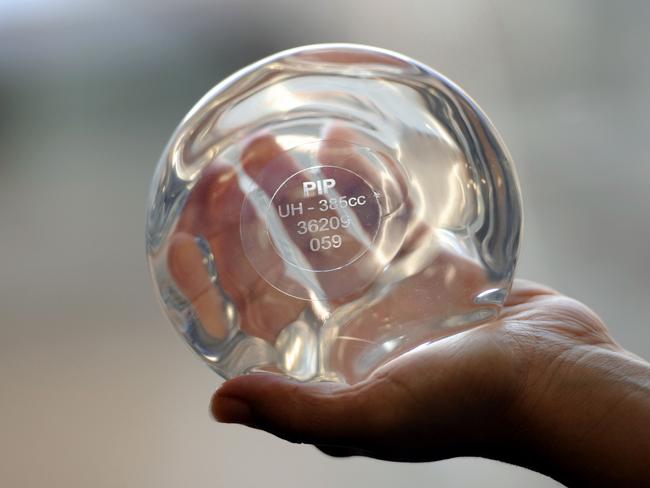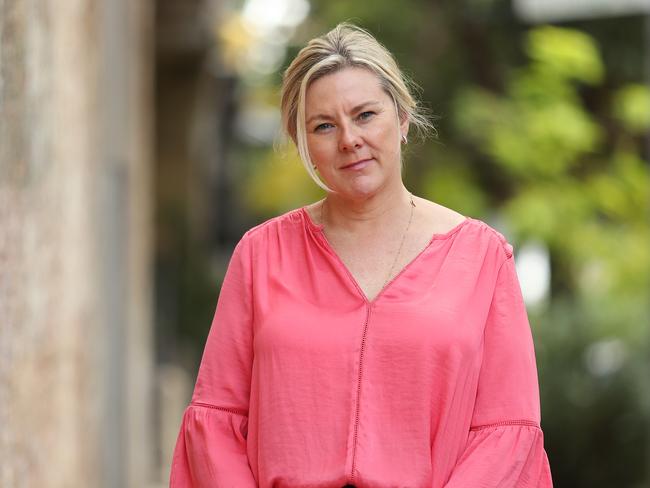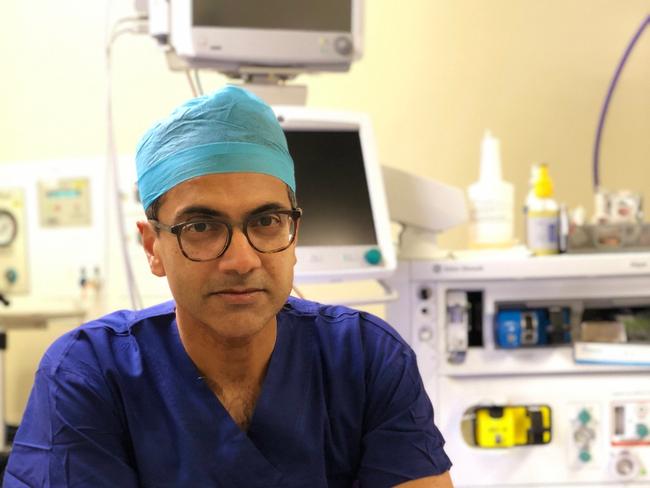Rare cancer cases linked to breast implants to be tracked via register
STATE and federal governments have joined forces to establish a breast implant registry in hopes to curb a dangerous, rare cancer. But it could all be in vain if surgeons aren’t forced to report their procedures.
Illness
Don't miss out on the headlines from Illness. Followed categories will be added to My News.
EXCLUSIVE
A FORECAST tsunami of rare cancer cases linked to breast implants will soon be tracked as health ministers move to get every breast implant recorded on a national register.
News Corp has revealed a disturbing 56 per cent increase in rare cancer cases linked to breast implants and has been campaigning for it to be made compulsory for every breast implant to be recorded on a national registry.
In a win for our campaign Health Minister Greg Hunt secured the support of state health ministers for a registry to track the use of implants at a health minister’s meeting in Darwin last week.
The ministers have agreed to work with the Chief Medical Officer Brendan Murphy on recording the use of breast implants.
The registry is also likely to record the techniques used during the surgery to see if doctors are following a 14 point plan that reduces the risk of bacterial infection which some doctors believe is linked to the cancer.

Picture: Supplied
“I am pleased that all states and territories have agreed to work with the Chief Medical Officer and investigate this important issue,” Mr Hunt said.
“Women facing the terrible battle of … cancer need clarity and I am pleased that all states agree with our action,” he said.
“States and territories play a key role in reporting this information and the use of registries. The CMO will now work with all jurisdictions to better understand this issue and provide recommendations.”
Opposition health spokeswoman Catherine King said if Labor wins the next election she would make participation in the registry mandatory.
Around 40,000 women a year are getting breast implants after surgery for breast cancer and for cosmetic purposes.
There have been 72 cases of the rare blood cancer ALCL reported and three deaths in Australia but doctors are predicting a surge in cases in the near future because of a rise in the number of implants as a result of discount surgery.
The Australian Breast Device Registry was set up in 2015 to track problems with breast implants after a Senate inquiry into the PIP implant scandal where industrial not medical grade silicone was used in implants.
However only 500 surgeons, (7 in 10 of those who use implants) are reporting data to the registry and this covers only 60 per cent of implants used.

Around five breast implant cancer clusters have been identified and linked to discount and high volume providers, with some of these doctors not reporting to the registry.
Sydney mum Stacey Franks who developed ALCL cancer after using breast implants says it would be “brilliant” if reporting to the register was made compulsory.
“With a registry you’d be able to see which surgeons have more incidence of cancer,” she said.
Ms Franks had to have her implants removed and is now undergoing radiotherapy after cancerous cells were discovered in fluid drained from the breast cavity.
Breast implant manufacturer Allergan has offered to help cover some of the costs of removing implants where ALCL is found but when Ms Franks contacted them she found she was not eligible.

Picture: Brett Costello
Her doctor didn’t know about the offer at the time her implants were removed and did not keep the removed implants, a condition of the Allergan payment.
Research by Professors Anand Deva and Mark Magnusson identified women fitted with Silimed’s rough textured implant have a 23.5 per cent greater risk of cancer and those with Allergan’s Biocell implant a 16.5 per cent higher risk.
Professor Deva told News Corp the only way to get the truth about the extent of the cancer was to make reporting to the breast device registry compulsory.
“At the moment no-one knows how many implants are put in every year, how many rupture and whether women are happy,” he said.

News Corp will continue to campaign for:
- The companies that manufacture the implants linked to cancer to cover the cost of removing them when women develop the cancer;
- All cosmetic and plastic surgeons to check women with high risk breast implants for cancer every 12 months;
- All breast device companies to declare publicly any payments or discounts they provide to plastic and cosmetic surgeons;
- All breast implant manufacturers to supply their sales data to researchers so cancer incidence rates can be determined.
